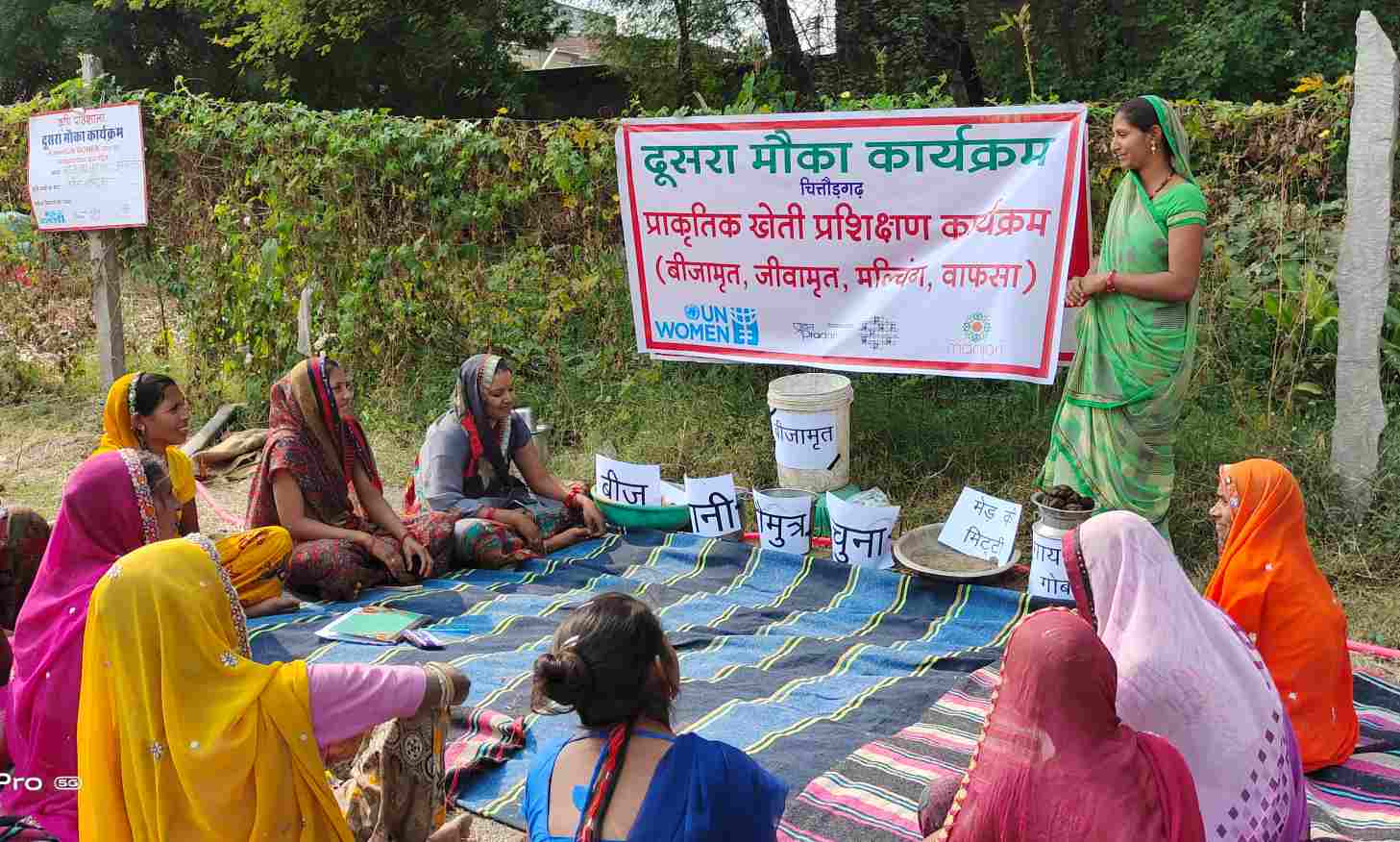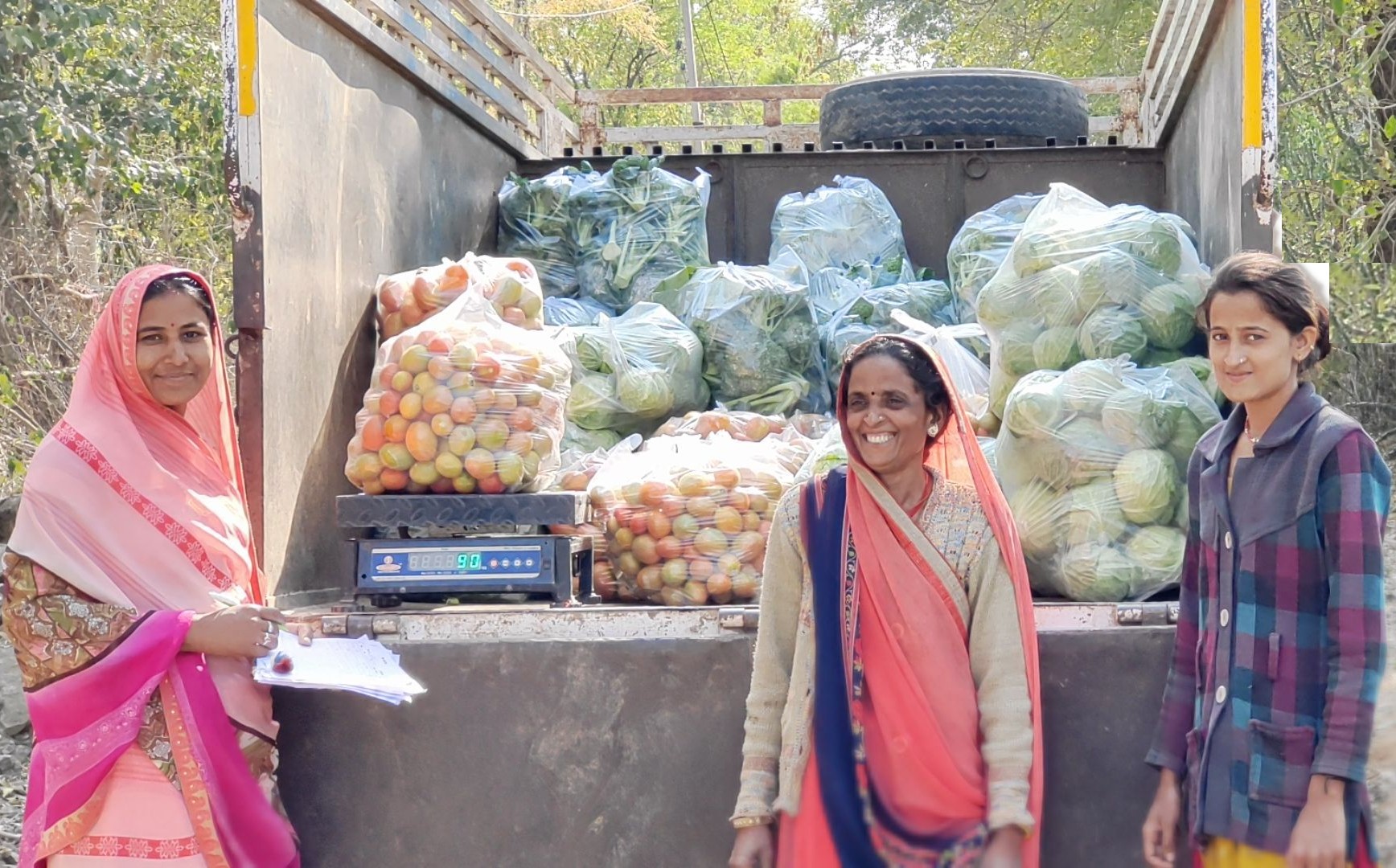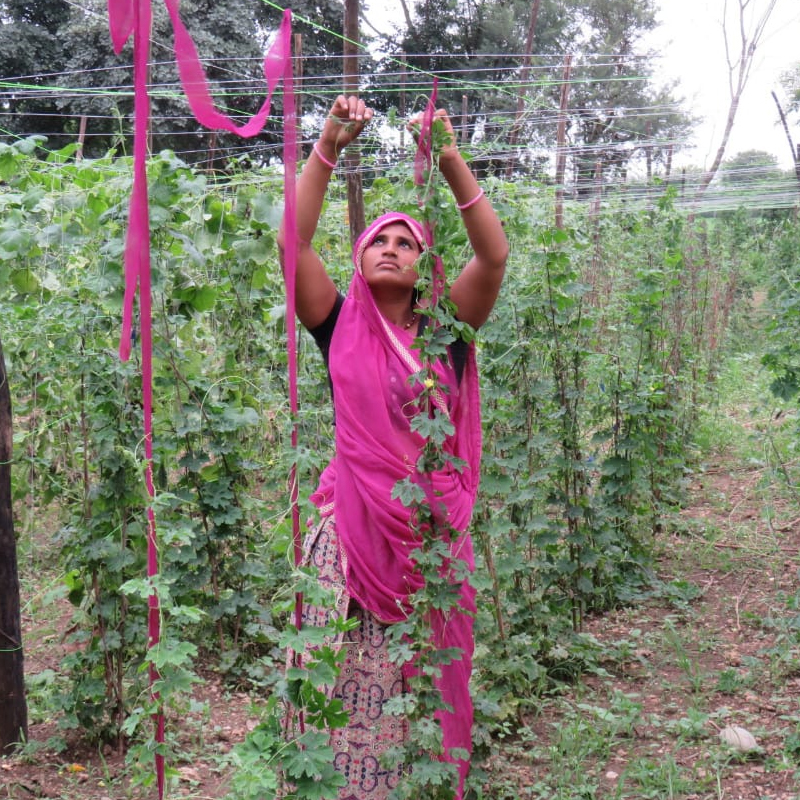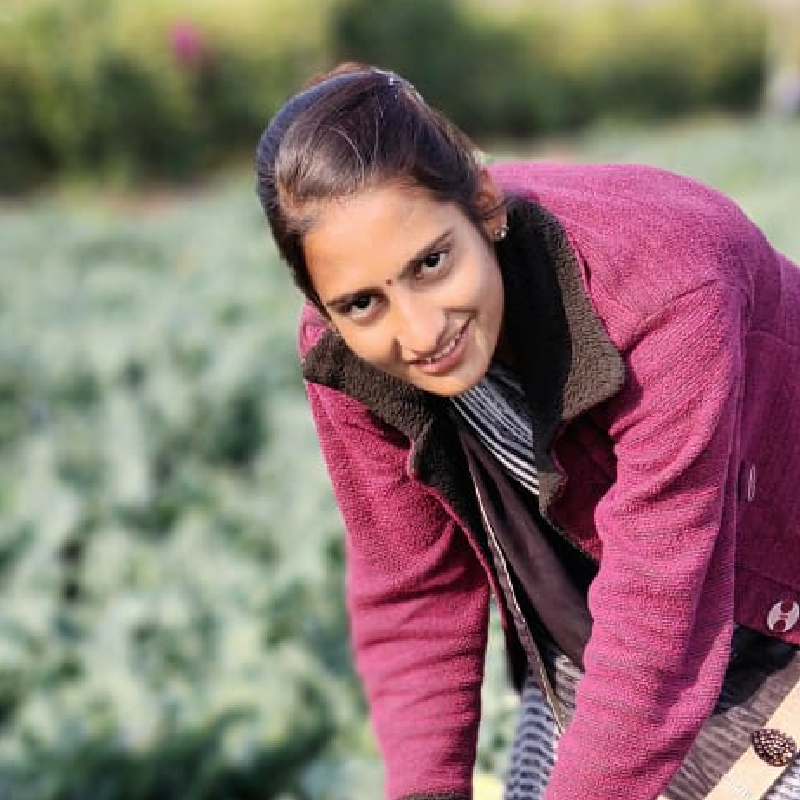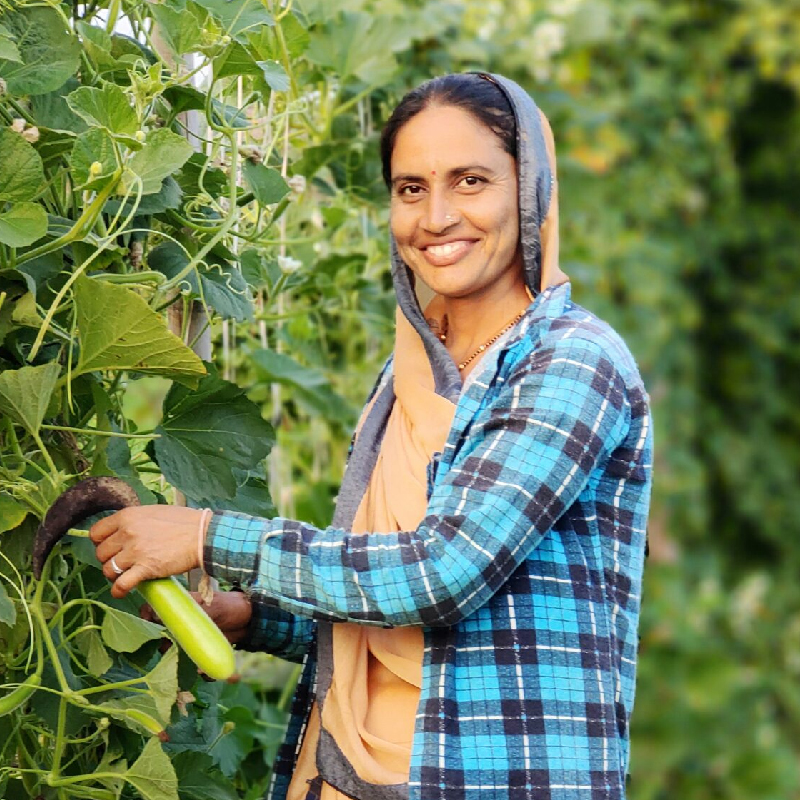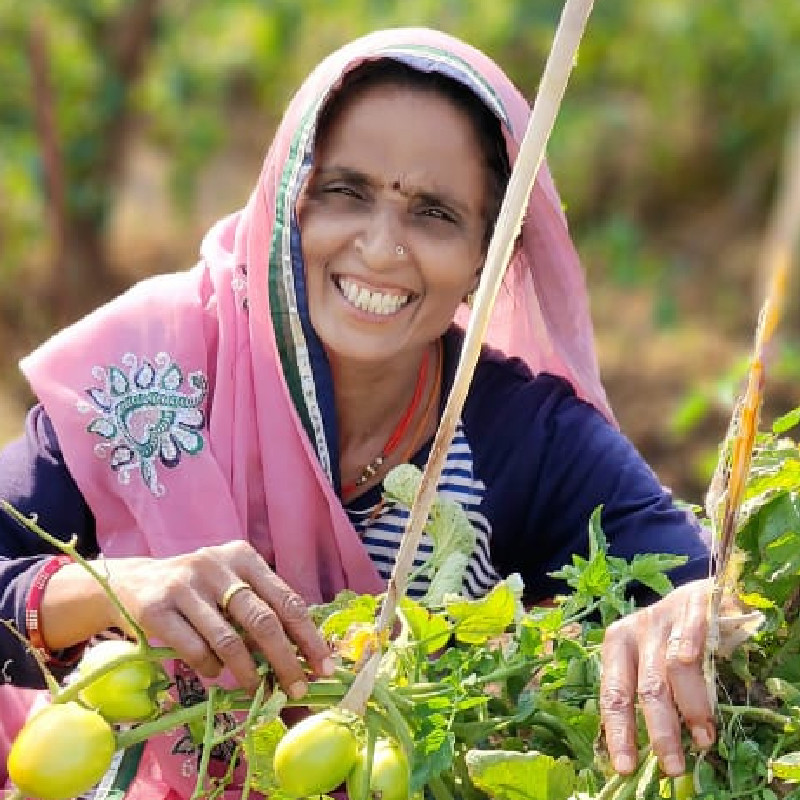Promoting Krishi Sakhi - A change agent and farmers friend for transferring knowledge and skills to farmers
Market-led Improved Agriculture
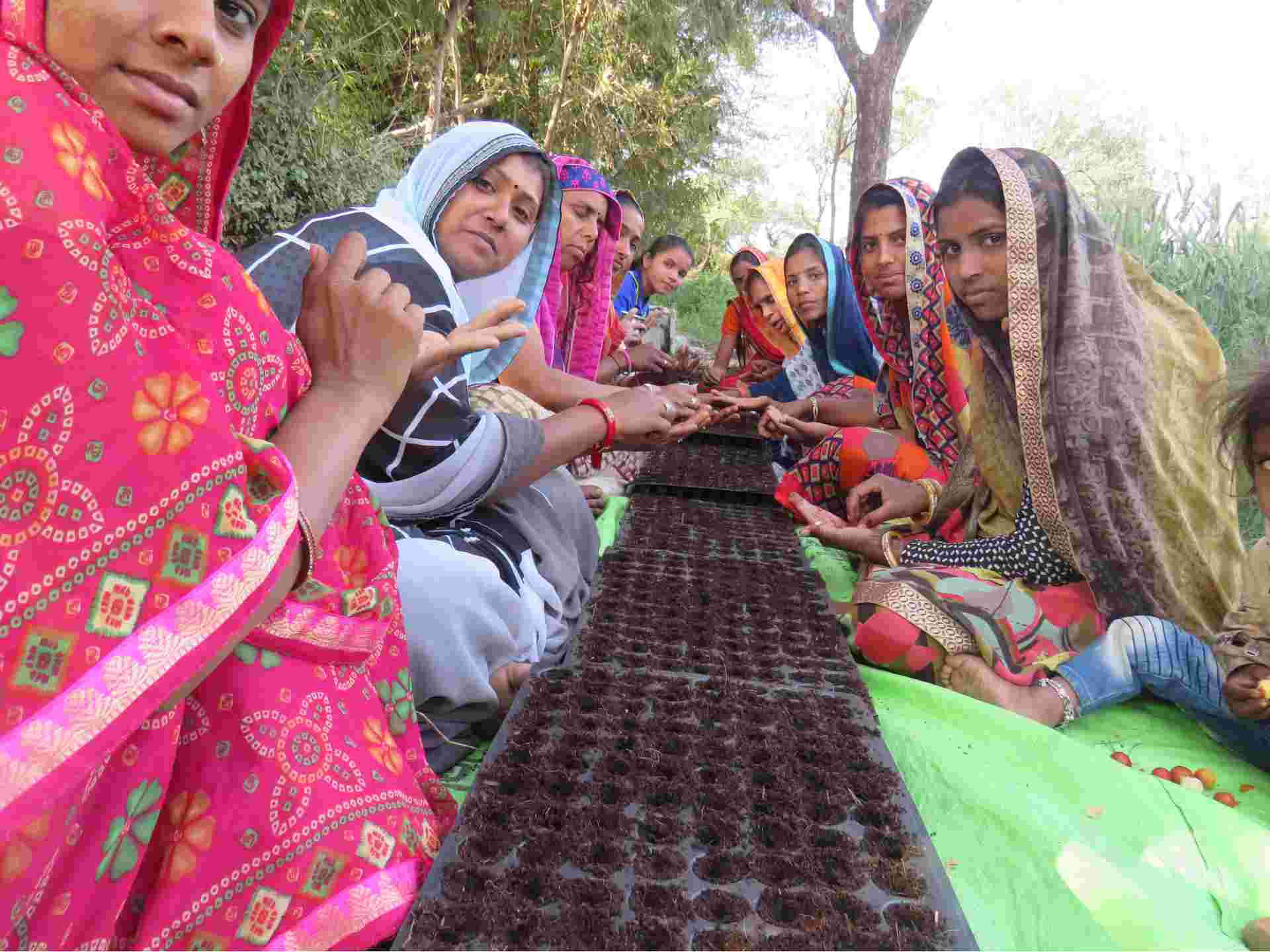
Overview
Small agricultural holdings constitute the vast majority of farms in many developing countries. In the Indian context, approximately 86% of our farmers are small and marginal farmers (i.e. owning less than 2 hectares of landholding); approximately 47% of the total arable land is owned by these small and marginal farmers. This data indicates the dominance of small and marginal farmers in the Indian agricultural system and it is therefore imperative to work towards uplifting their status and ensuring them a secure means of livelihood. The Indian agriculture sector employs 80% of all economically active women in India; they comprise 33% of the agriculture labor force and 48% of the self-employed farmers.
